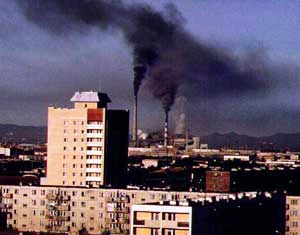 |
| Photo courtesy of christahasenkopf.com |
I recently read a quote by Edward Glaeser, an urban economist, in the latest issue of IFC’s quarterly journal on Public-Private Partnerships (PPPs), which caught my attention:
Statistically, there is a near-perfect correlation between urbanization and prosperity among nations. As a country’s urban population rises by 10 percent, the country’s per capita output increases by 30 percent.
I immediately thought of Ulaanbaatar, the frozen capital of Mongolia, which The Economist recently described as a boom town. Since the emergence of the free-market economy twenty years ago, the population of the city has doubled to over one million. Economic growth in Mongolia has certainly been phenomenal—20.8 percent in the third quarter of 2011—led by a mining sector gone wild. I’m not sure if Mongolia’s experience was factored in Glaeser’s calculations, but the correlation seems to hold.
Prosperity, however, hasn’t come just yet. The surge in the population of UB (as we call the capital) put a visible strain on the city. You don’t have to be an economist to see it. The roads can’t handle the 100,000+ vehicles in the city today, which has led to horrendous traffic jams. Three Soviet-era coal-fired power plants contribute to the sickening winter smog. Hundreds of thousands of people in the newly-created ger districts have limited access to housing, electricity, or water. Health systems are overburdened, and educational institutions struggle to prepare young people for the new economy.
So what’s the answer? To stop the urban migration? Definitely not. As Glaeser points out: “People are moving for a reason. It’s a terrible thing there are so many poor people in the world, but it’s not a terrible thing that they have come to cities to try and make their lives better.” Instead, Ulaanbaatar will have to evolve as its population and economy grow. To do that, it will need the experience and resources of the private sector.
Public-private partnerships can help make that happen. Mongolia has already taken the initial steps. With help from the Asian Development Bank (ADB), it passed the Law on Concessions in 2010 and kicked off its first major PPP, for a new power and heating plant. And good governance, especially in relation to the development of the mining sector, is a high priority and a core part of the government’s partnership agreement with the World Bank. With a better regulatory environment for PPPs, the private sector will be able to contribute a lot to the city’s infrastructure and public services.
But there’s a lot more to be done before Ulaanbaatar can be considered a world-class city that meets the needs of its people and supports the country’s expanding economic machinery. Is it going to happen? Having watched Mongolia for the last several years, I’m optimistic. But it would be great to hear what people living in Ulaanbaatar (Mongolians and expats alike) think about the future of the city.
Further reading: Handshake: Cities and PPPs


Join the Conversation